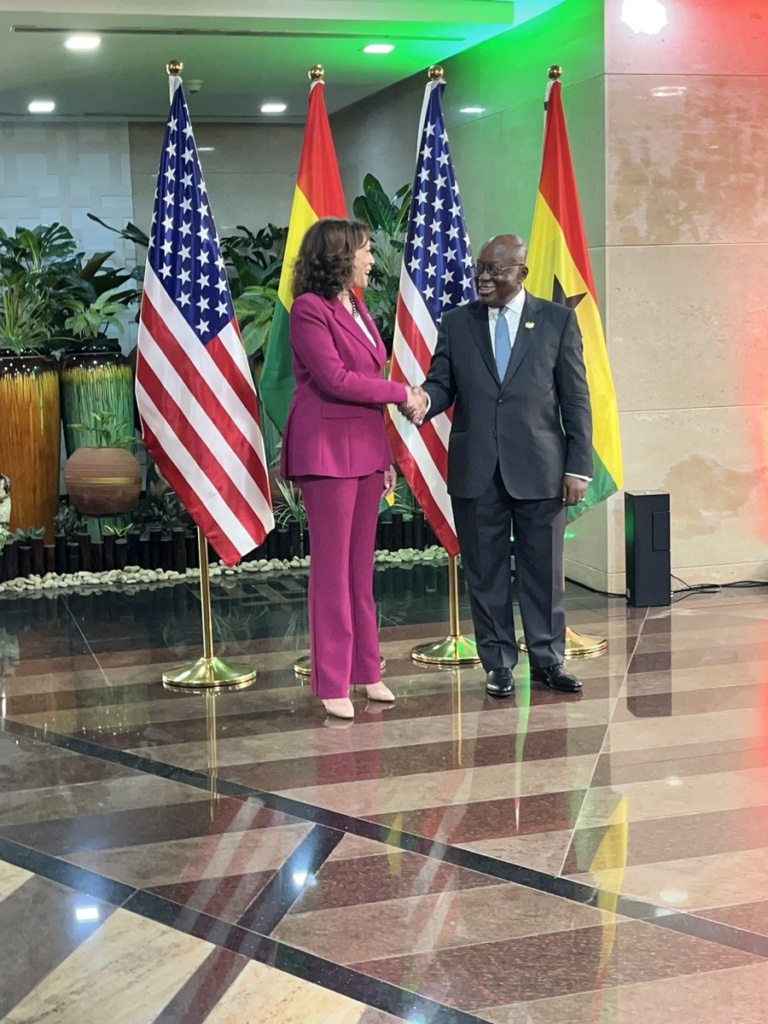
By Olakunle Agboola – Beneath the surface of Africa lies a wealth of mineral resources of enormous value. In 2019, the continent produced almost 1 billion tonnes of minerals worth $406bn.
The United States of America under President Joe Biden is not going to be an onlooker without stepping up a campaign to build his country’s influence in Africa. It is becoming a new cold war for the US to regain influence where they have lost ground to Russia and China.
US Vice President Kamala Harris is the latest top official in Africa as she is scheduled to visit Ghana, Tanzania, and Zambia. US Secretary of the Treasury Janet Yellen and US Secretary of State Antony Blinken, have both been in West and East Africa recently paving a way for a follow-up by US Vice President Kamala Harris. At a summit last year with the continent’s leaders, Biden pledged a US$55 billion support package for Africa.
The purpose of the visit is to engage the selected African countries with their rich mineral resources as Russia’s war in Ukraine — and the accelerating standoff between the US and China — shake up global negotiations. Both sides are seeking to win over non-aligned countries in places such as Africa.
Economic contest with China, Africa’s biggest partner is more important to Harris and her administration with this visit to Africa, and she will do all to have a resounding success exploring all opportunities.
According to the United Nations, Africa is home to about 30 percent of the world’s mineral reserves, 12 percent of the world’s oil, and 8 percent of the world’s natural gas reserves. The continent also holds 40 percent of the world’s gold and up to 90 percent of its chromium and platinum – both valuable metals.
Lithium and cobalt are some of the critical metals used to produce batteries. In 2019, about 63 percent of the world’s cobalt production came from the Democratic Republic of Congo.
Tantalum is another metal used in electronic equipment. Tantalum capacitors are found in mobile phones, laptops, and a variety of automotive electronics. The DRC and Rwanda are the world’s largest producers of tantalum. Together they produce half of the world’s tantalum.
Petroleum and coal are among the most abundant minerals for 22 out of Africa’s 54 countries. As of 2019, Nigeria produced most of the continent’s petroleum (25 percent), followed by Angola (17 percent), and Algeria (16 percent).
Metals including gold, iron, titanium, zinc, and copper are the top-produced minerals in 11 countries. Ghana is the continent’s largest producer of gold, followed by South Africa and Mali. Africa is a wealthy continent, and this explained the unending interest of America, Europe, and Asia in Africa.
The US-China rivalry includes a race to secure minerals that are critical to green energy — Africa has some of the world’s biggest supplies — and a dispute over debt relief, as burdens for poor countries to pay has been a major concern with interest rates.
US leaders are capitalizing on China’s debt traps as a means of concession and influence. They have continued to call the attention of African leaders to the steep price for borrowers, and the difficulty they face in paying Beijing back. It’s clear that US Officials are using these visits to draw a vivid distinction between Washington’s approach” and that of its rivals.
The USA has continued to use a different approach to knock down its rival. Recently the US promised US$165 million to support fair elections in Africa as a way of promoting democratic government — combined with warnings about the destabilizing role of Russia’s Wagner Group, which is active in countries such as Mali and the Central African Republic.
Another approach is fighting China’s debt diplomacy in Africa. Harris’ itinerary includes Zambia and Ghana, which have both defaulted and soaked into China’s debt since the COVID-19 pandemic hit and are seeking a way out. https://africanvoiceonline.co.uk/zambia-the-gateway-to-africa-colonization/
African leaders are aware of the hitch of borrowing from China. They are becoming receptive to what the Biden administration is said to offer. The US is backing more Western lending to Africa. The commitment of US$55 billion over three years that Biden made at the US-Africa Summit in December last year, the first such conference since 2014, included US$21 billion in lending to low and middle-income nations via the IMF.
The US is pushing for a transition to clean energy, and African countries hold some of the minerals that are vital to emerging technologies, such as lithium and cobalt, which are used to make batteries for electric vehicles. China is well ahead of the rest of the world in securing a fully vertical supply chain for electric vehicle production, but it is still hungry for metals such as copper and cobalt, of which China, the US, and Europe produce very little, while Africa dominates.
It is not just the US and China seeking to build influence in Africa, but also India, Turkey, and Saudi Arabia waking up to fight for Africa’s mineral resources.
Kindly follow us on twitter:@AfricanVoice2








